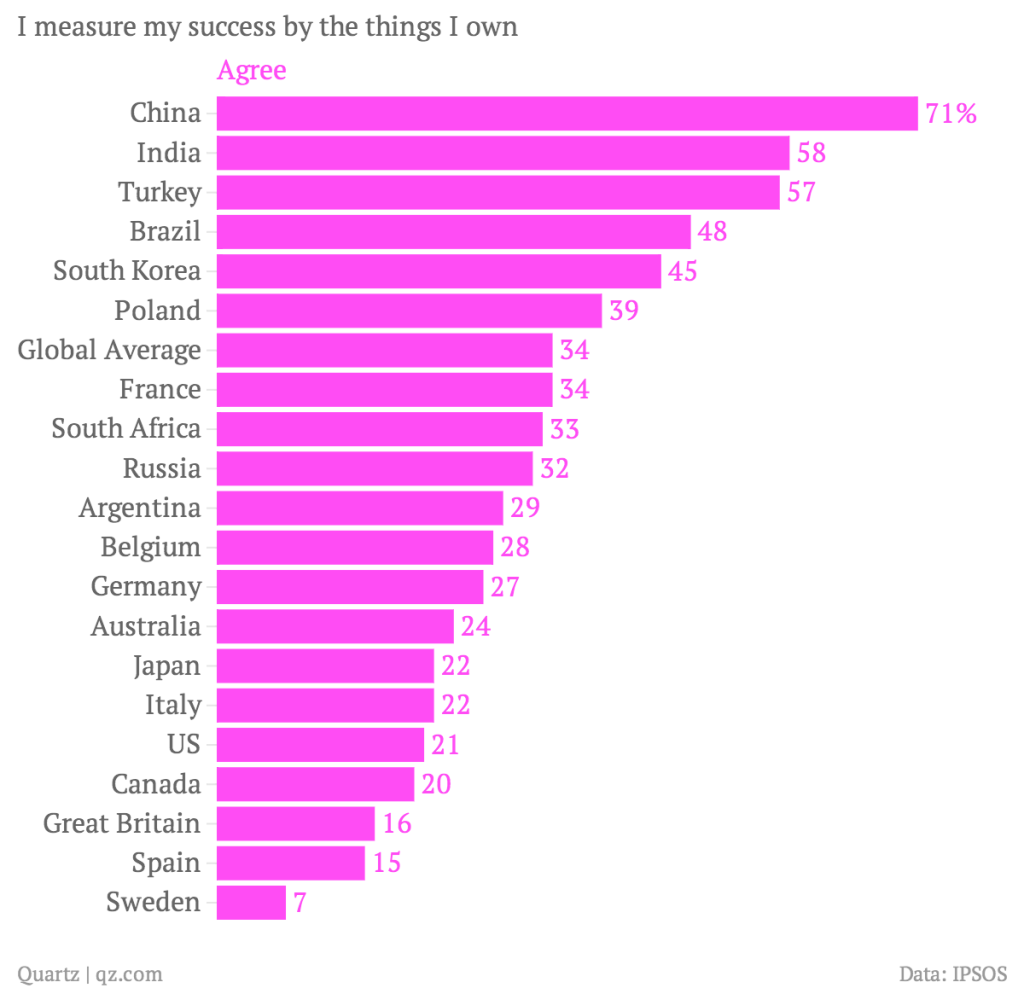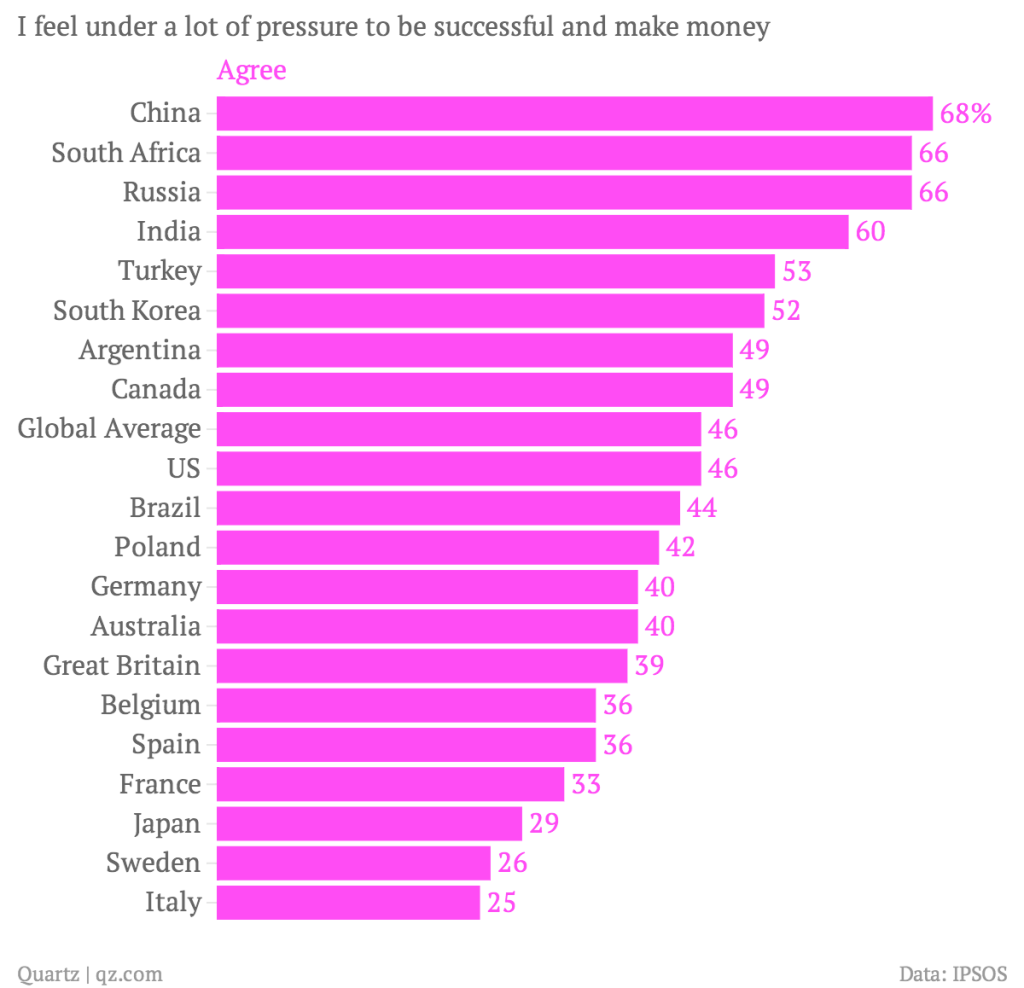Are Chinese People the World's Most Materialistic?
A new survey claims that in China, people identify their success by the things they own more than in any other country in the world. But is this so unusual in a developing country?

A recent survey conducted by global research firm IPSOS across 20 countries, found that a whopping 71 percent of Chinese say they gauge their success by the things they own. That’s significantly higher than it was for every other country included in the survey.

The tendency to equate material goods with overall success seems to have, at least in part, surfaced from societal forces. Chinese were also the most likely to feel pressured to be successful and make money.

Chinese shoppers are the now world’s biggest buyers of luxury items, accounting for nearly a third of global purchases, according to consulting firm Bain & Co. Five years ago China accounted for little over 10 percent of global luxury purchases. Even amid a government crackdown on corruption and lavish government spending—which once accounted for a good deal of the country’s luxury purchases—China’s taste for fancy things has remained strong. That’s in part because Chinese are buying luxury goods overseas, with some two-thirds of their luxury purchases now outside China. China’s taste for luxury is such that even its funeral industry is moving to capitalize on the trend.
On the whole, there appears to be a correlation between the stage of a country’s development and its tendency to equate money with success. China, India and Brazil, three of the world’s most noteworthy developing countries, were all among the likeliest to measure success by material belongings. In fact, a deeper dive into the data shows that while Chinese agreed most that success is measured by the things one owns, Brazilians and Indians were actually more likely to “strongly agree” with the statement. Developed countries, like Germany, Japan, the U.S., and the U.K., on the other hand, were among the least likely by all measures.
This post originally appeared at our sister site Quartz.